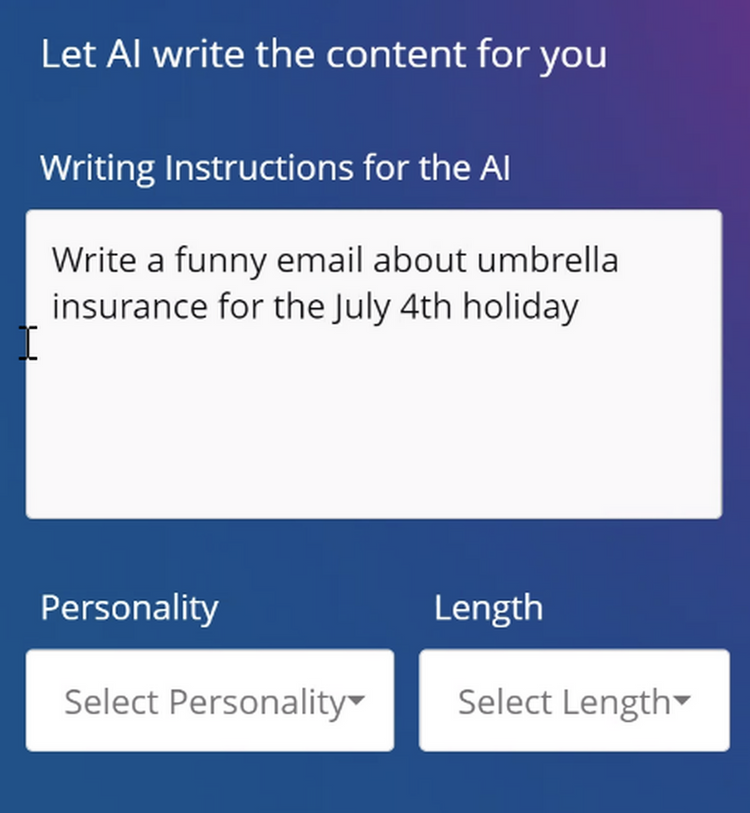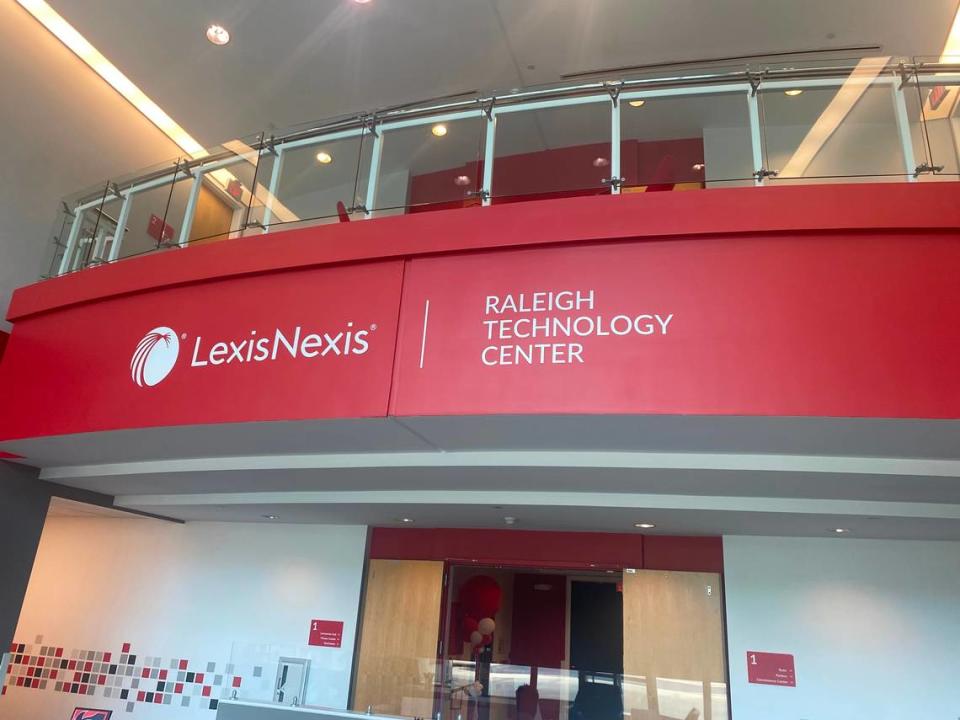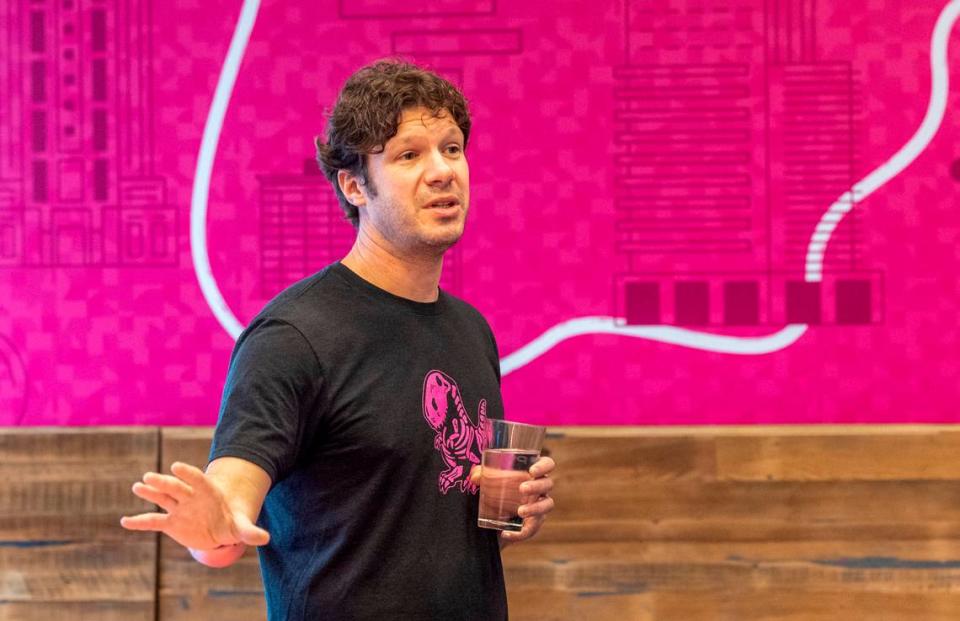‘Like magic.’ More Raleigh firms embrace ChatGPT breakthroughs to boost AI offerings

During the previous winter season, Jesse Lipson was one of the many individuals who tried out ChatGPT, an extensive language model. This model quickly provides written responses to prompts, which are unique, detailed, comprehensive, and typically accurate.

Introduced in November by OpenAI, ChatGPT represented a significant advancement in the field of generative AI, a branch of artificial intelligence that generates new text, sounds, images, and data analyses that didn't exist before. Numerous individuals viewed this program as an impressive feat, a groundbreaking technology with incredible, though uncertain, possibilities. However, Lipson perceived generative AI as a tangible possibility in the not-too-distant future.
Lipson established and is currently serving as the Chief Executive Officer of Levitate, a cutting-edge marketing software company based in Raleigh. Levitate specializes in assisting small businesses in maintaining effective communication with their clients using email and various social media platforms.
Lipson, a recurrent tech innovator who established and traded the prosperous cloud storage company ShareFile, established Levitate in 2017 with a strong focus on artificial intelligence. While registering Levitate's online platform, he deliberately opted for a domain that did not conclude with the typical .com extension, instead, he chose .ai.
However, it was only recently, according to his statement, that the advanced AI technology that creates original content started to seem dependable for commercial integration.
and embarking on a new venture with Levitate after successfully selling his previous startup, ShareFile, to Citrix in 2011. Jesse Lipson has now embraced artificial intelligence (AI) in his latest endeavor.
Levitate launched its new ChatGPT-powered offerings in the month of April. With these services, individuals have the ability to input specific instructions to the program, such as "Compose a thank you message for Marta." They can witness the magic unfold before their eyes as a unique note of appreciation materializes in a matter of seconds. Users have the flexibility to select from different text lengths and choose from an array of personality styles (formal, informal, and humorous) to receive tailored responses. Afterward, customers can make any necessary edits to the content generated by the AI ghostwriter.

According to Lipson, this feature has been embraced at an incredible speed. It seems like magic to our customers.
Throughout the Triangle area, businesses have enthusiastically embraced the most recent advancements in generative AI.
Pendo, a software company based in Raleigh, recently introduced its artificial intelligence system. Diveplane, another company located in the Triangle area, advocates for the ethical implementation of AI and utilizes AI technology to generate specific standard code.
In May, the legal information database LexisNexis initiated the trial of its artificially intelligent platform in 10 prominent law firms worldwide. The platform's global technology operations are housed at North Carolina State University's Centennial Campus.
"Attorneys, specifically, produce a plethora of paperwork and copious amounts of written content," explained Jeffrey Pfeifer, LexisNexis' Chief Product Officer and leader of the Raleigh site. "We perceive immense potential for technology to enhance the methods lawyers employ, such as document drafting and information retrieval for legal inquiries."
Lawyers, Pfeifer clarified, have the ability to utilize artificial intelligence (AI) for composing written materials, engaging in discussions about legal inquiries, and condensing intricate legal texts.
LexisNexis has its main technology hub in the United States located on the Centennial Campus of North Carolina State University situated in Raleigh.
Although ChatGPT has not been completely reliable in the realm of law, as seen in June when New York lawyers were criticized for using fabricated cases generated by the model, Pfeifer stated that the exclusive LexisNexis AI model solely draws information from the company's verified database. He emphasized that the software, partly powered by ChatGPT, includes reference citations for the answers it offers.
ChatGPT is widely recognized as the most well-known among the extensive language models. These models derive their responses from expansive collections of data and employ machine learning techniques to organize them in a coherent manner. Despite its seemingly human-like conversational abilities, the AI relies on predictive modeling to determine the most appropriate word to use.

When the answer is incorrect, it collects user input to enhance precision.
"When you educate it, it enhances the intelligence of all your models," stated Todd Olson, Pendo's CEO and co-creator.
Creating A 'knowledge Base'
Back in January, OpenAI received a significant $10 billion investment from Microsoft. Moving ahead to March, Google unveiled its own generative AI platform called Bard, which is also utilized by Pendo. Pendo, based in downtown Raleigh, specializes in assisting companies in comprehending the ways in which their software is utilized by both their customers and employees.
Olson expressed that we possess a wealth of knowledge regarding software usage among individuals. One of the most significant hurdles we face is determining how to condense this information into practical and implementable measures.
Enterprise artificial intelligence is distinct from the freely available AI one can access on the internet. The paid variants of ChatGPT offer enhanced features, personalized options, and the capability to safeguard data without utilizing it to improve the overall language model.
Todd Olson, the CEO and creator of Pendo, proudly presents the new headquarters of the software company located in the heart of downtown Raleigh on Wednesday, February 23, 2022.
With the entrance of generative AI in the business world, certain individuals emphasize the significance of adequate model guidance. Established in 2018, the Raleigh startup Diveplane supports the idea of transparent artificial intelligence, which involves models enabling humans to comprehend the process behind the obtained outcomes.
According to Chris Hazard, co-founder and CTO of Diveplane, artificial intelligence (AI) enables us to expand the reach of decision-making and information dissemination, impacting a greater number of individuals in a simpler and more efficient manner. However, this can also lead to significant negative consequences. Gaining a deeper understanding of the underlying reasons can facilitate the process of making correct choices.
The growth of technology is set to lead to an increase in the number of business applications. OpenAI recently introduced a more advanced version called GPT-4 in March. Additionally, Code Interpreter was launched by the company during the summer, enabling users to upload files such as Excel spreadsheets. This tool facilitates the creation of charts and the solution of math problems based on the provided data.
Lipson, who has quite a good understanding of the capabilities of generative AI, finds himself profoundly amazed by recent innovations such as Code Interpreter.
"That feels quite enchanting," he uttered.
Are you a fan of Triangle tech updates? Subscribe to Open Source, The News & Observer's tech bulletin that arrives in your email every Friday morning. Register now.









































